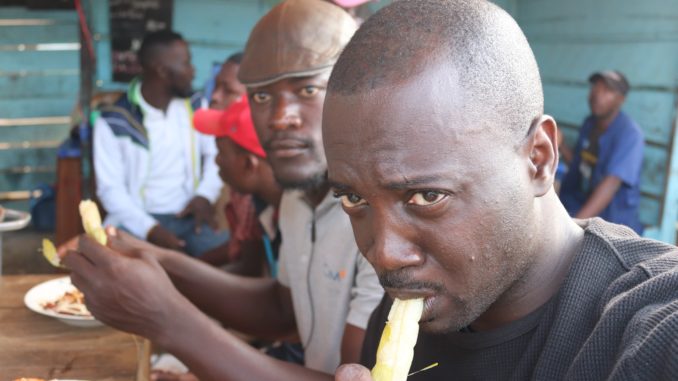
Yaoundé to Ebolowa
Travelling from Yaoundé to Ebolowa (pronounced Ebolova) costs almost 3000 CFA ($6 USD) for a 2-hour journey. The price could be cheaper if I had decided to take a bigger bus. There are a few advantages of traveling with a small car at that very wee hours of the morning. First, there would be less police and security operatives on the route. Most of them work during the day and night and then retire back home to rest for the new day those early hours. Secondly is that you will not face traffic jams on the usually very busy roads of Yaoundé.
We left Yaoundé as early as five o’clock and we arrived Ebolowa at a few minutes past seven o’clock in the morning. As I had noted earlier, the road was free and smooth and we did not have to face numerous road blocks setup by police and other security agencies. One of the challenges of traveling on Cameroonian Highways is that there are many road blocks as noted earlier. In fact, not just Cameroon, it is in fact the same problem in Equatorial Guinea, Gabon and other places in Central Africa. The annoying thing about those road blocks is that they extort lots of money illegally from foreigners who ply the route. I would talk more about this later on this series.
I had requested the commercial taxi driver who dropped us at Ebolowa that I was travelling to the Kiossi border with Equatorial Guinea. He had asked me to pay him 7000 CFA to take me there. This is a total rip off but thank God I had estimated the distance on a map and it was not worth that sum. Noticing I was not willing to pay the amount, he asked me to pay 5000 CFA but by then, I did not trust him anymore to continue the journey with him. The journey was not supposed to cost more than 2000 CFA and for him to have asked for 7000 initially, there was no need traveling with someone you do not trust especially then that I was not in a hurry. I had to wait for another bus/taxi and also used the opportunity to explore the Ebolowa town.
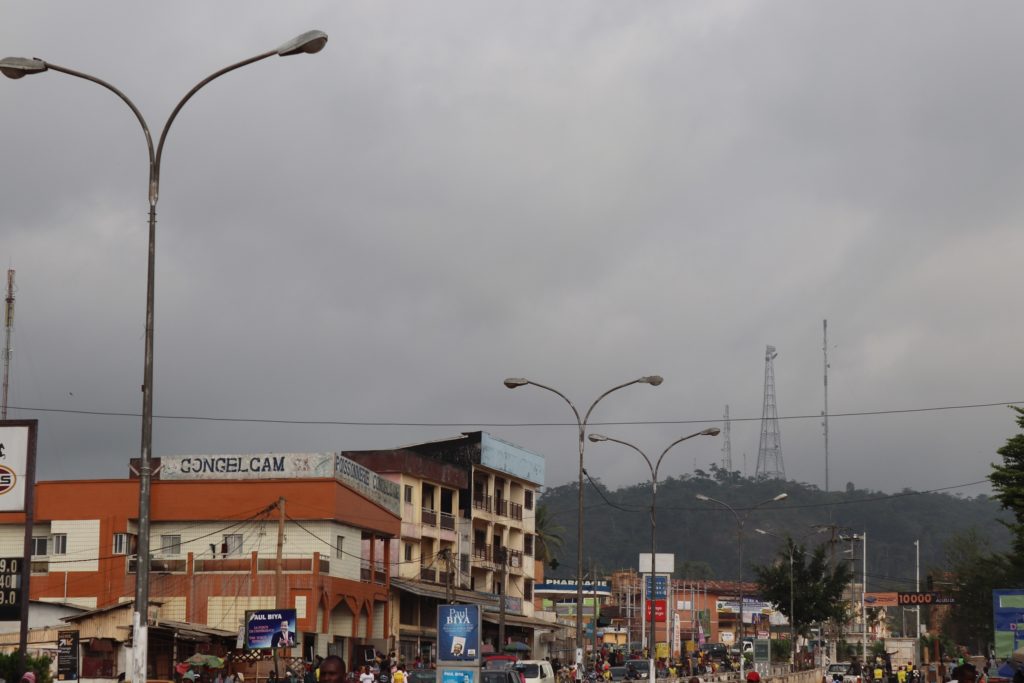
The Streets of Ebolowa 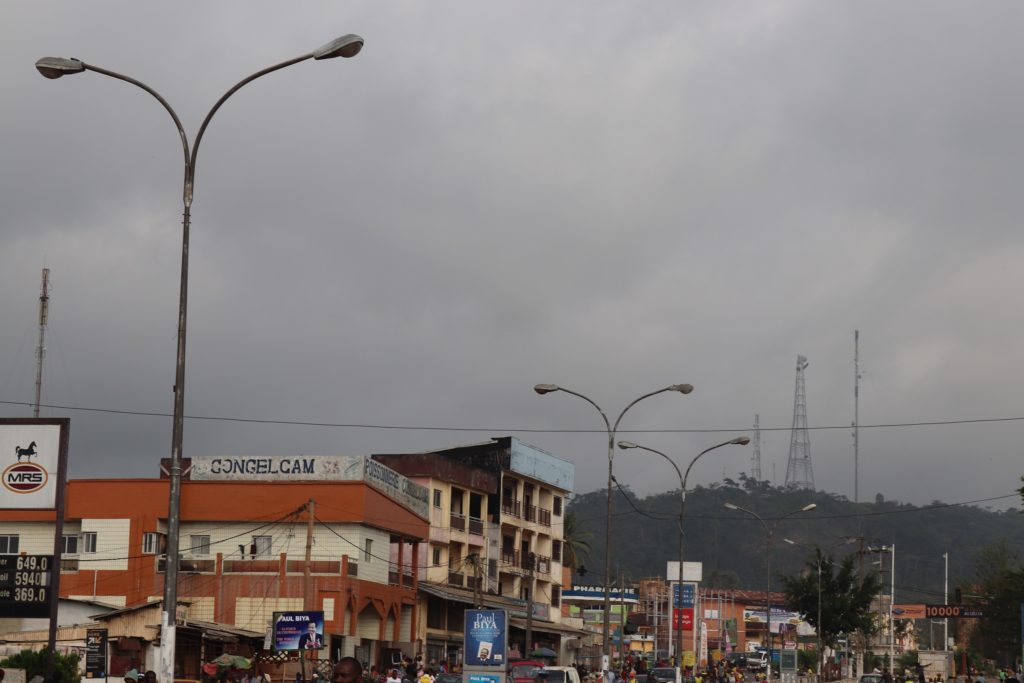
The Streets of Ebolowa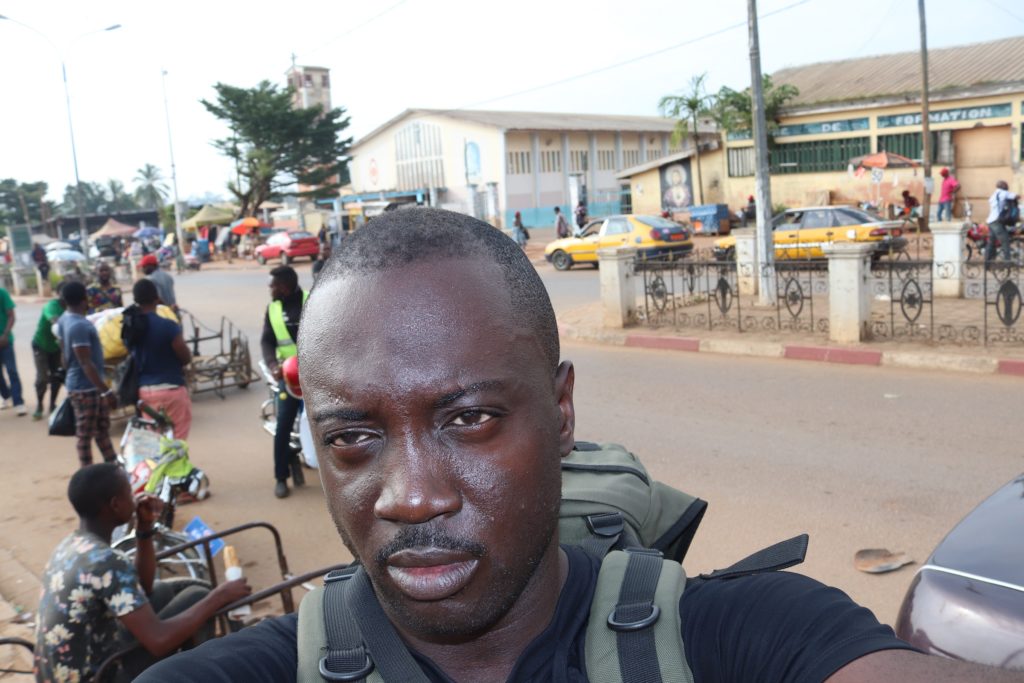
Me at Ebolowa 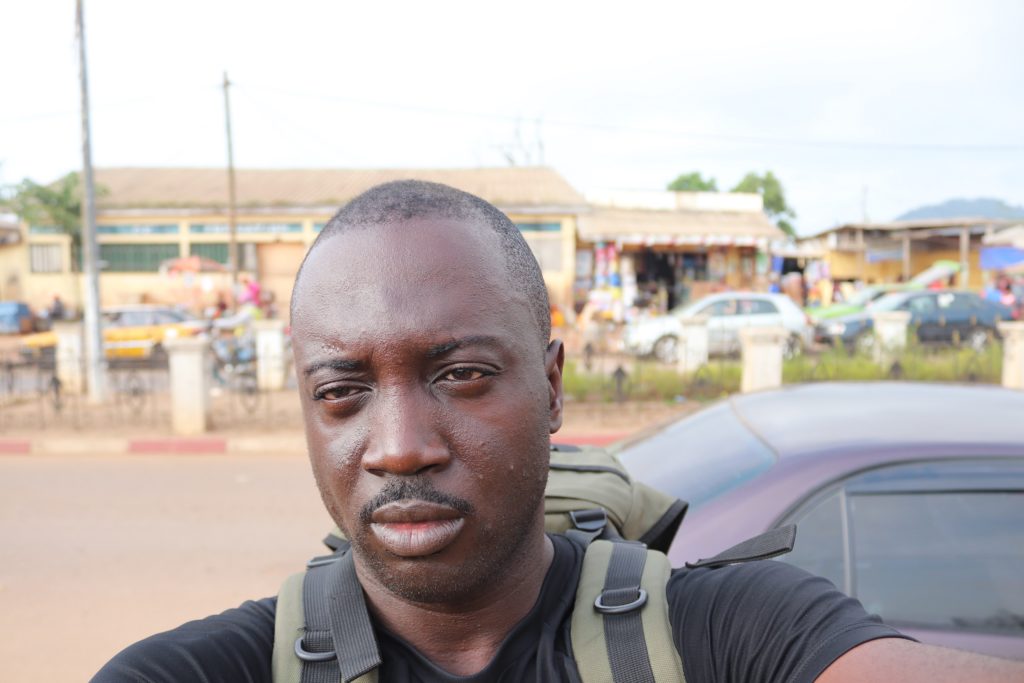
Me at Ebolowa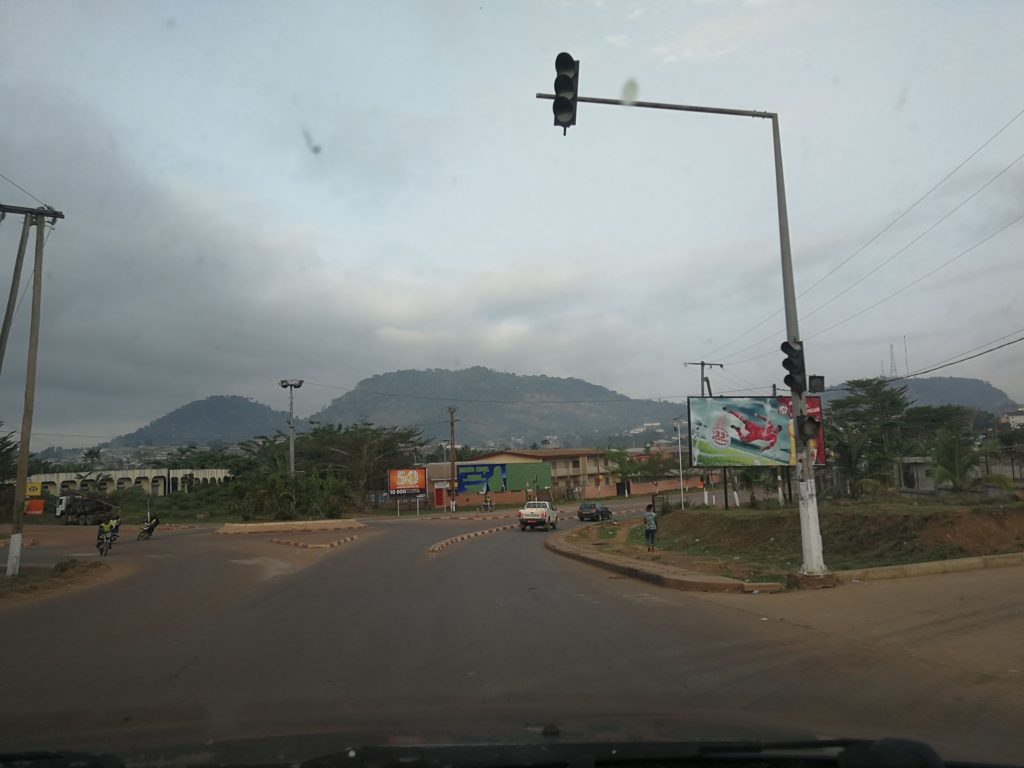
The Streets of Ebolowa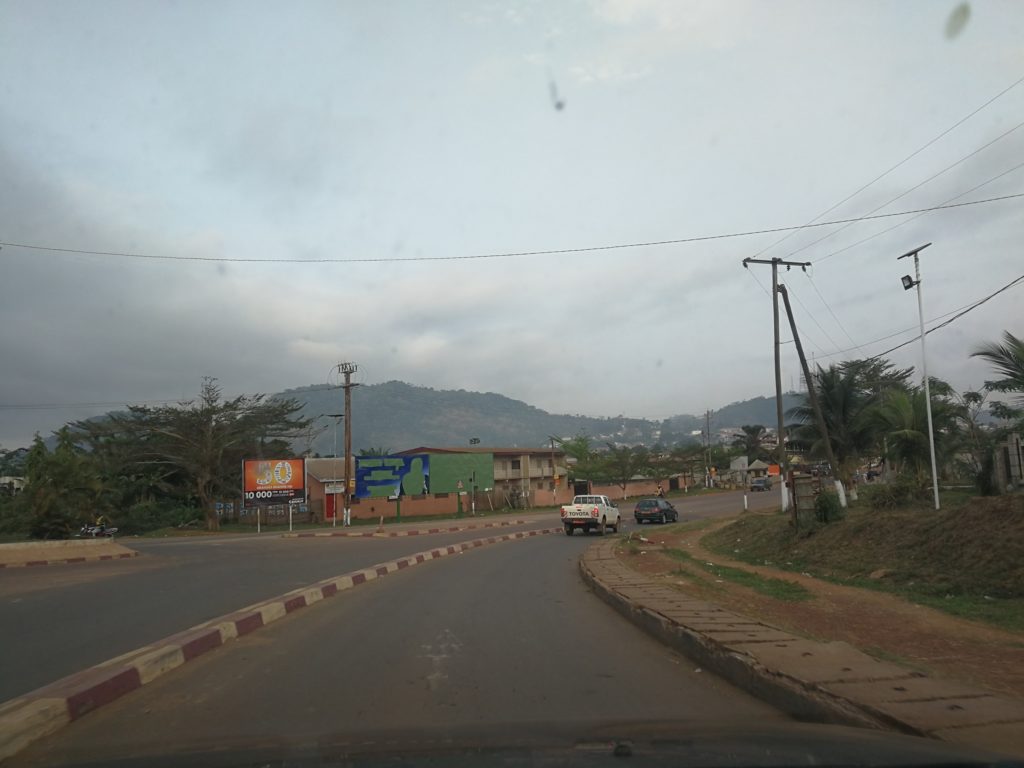
The Streets of Ebolowa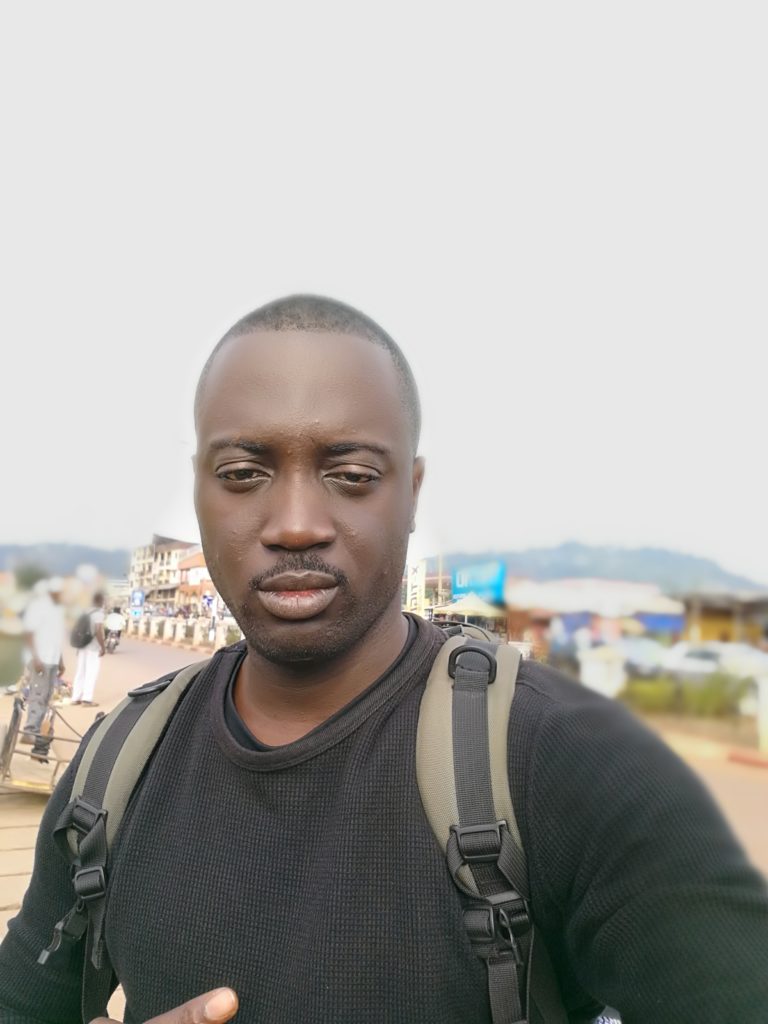
Me at Ebolowa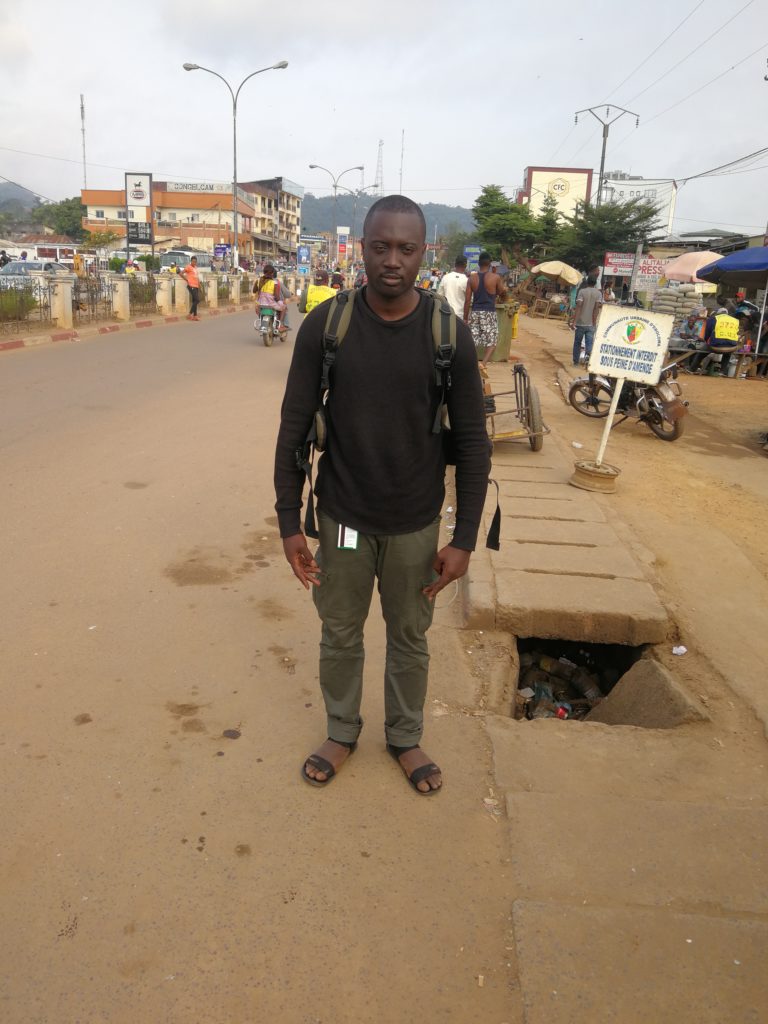
Me at Ebolowa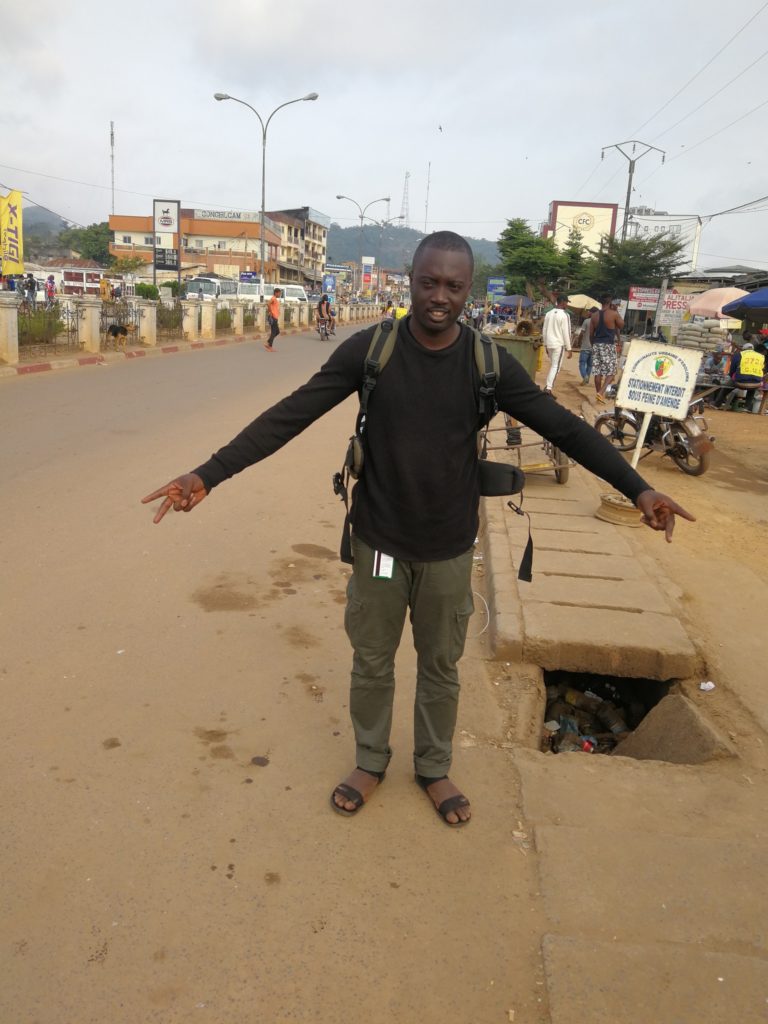
Me at Ebolowa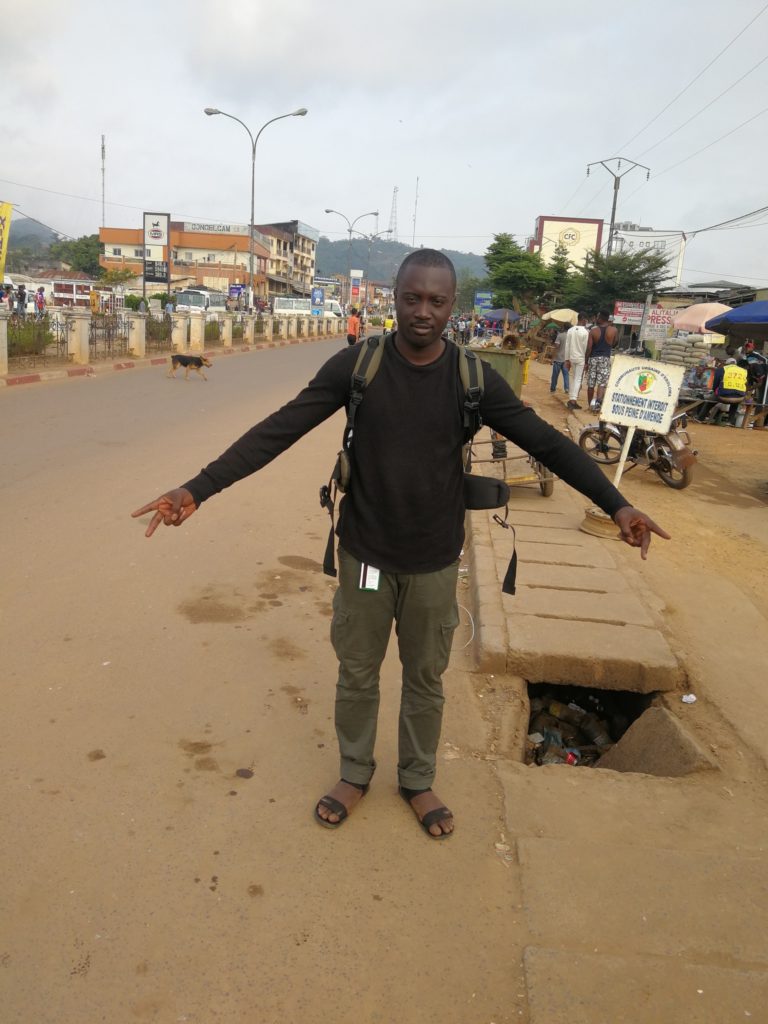
Me at Ebolowa – meanwhile, I threw those sandals away in Argentina after it threw me to the ground on snow lol
Ebolowa is the capital city of the Cameroon South Region and business activities makes the place very lively. Billboards with the incumbent President Biya’s picture advocating for his re-election adorned most parts of the city. People were coming from different parts of the city to the central bus terminal from where they would travel to their different destinations. Some of the vehicles were full with passengers who squeezed themselves and goods. They all seemed comfortable sitting the bus that way and no one complained.
Several transport companies had their staff and touts representing them calling on passersby to patronize them. It was one of those touts who was staring at me intently to get me to patronize that I walked up to at that moment to find out how and where I would get a vehicle going to the border town of Kiossi. ‘Bonjour mon frère, comment puis-je trouver une voiture qui va à Kiossi ?’ I asked him. He told me to hold on that a vehicle would show up soon. I waited for more than an hour without any success. It was then I felt it would be good to have breakfast and since the guy has been of help, I thought it would be ok inviting him over to have breakfast with me. His name is Patrick.
Initially, he was very modest in ordering for just a few things and it was obvious he was not wanting me to spend a lot on him. I however caused trouble for myself when I asked him to order more. He ordered almost double and even asked me to give him the cash I had wanted to use to buy bottled water for him, since the lady who sold the food does not sell it. The breakfast was rice and stew with fish. Baron de manioc was given to us as a bonus, it is a very important food there as well, it was used to garnish most meals – though I’m not a fan. We ate and were full. He gave me his number and asked me to please keep in contact – I agreed.
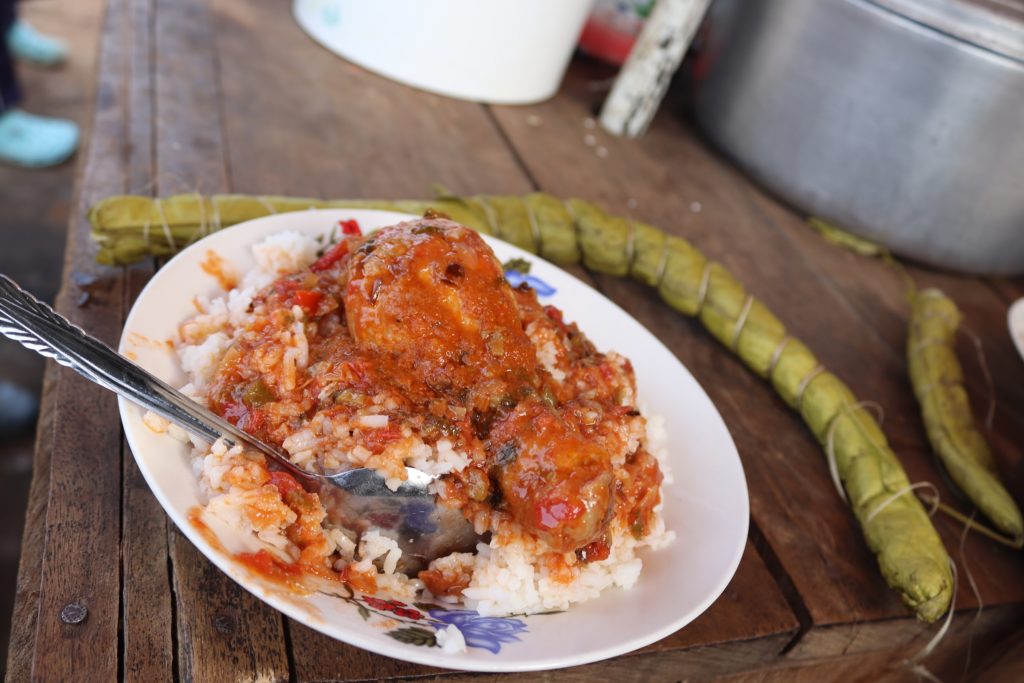
Rice and baron de manioc 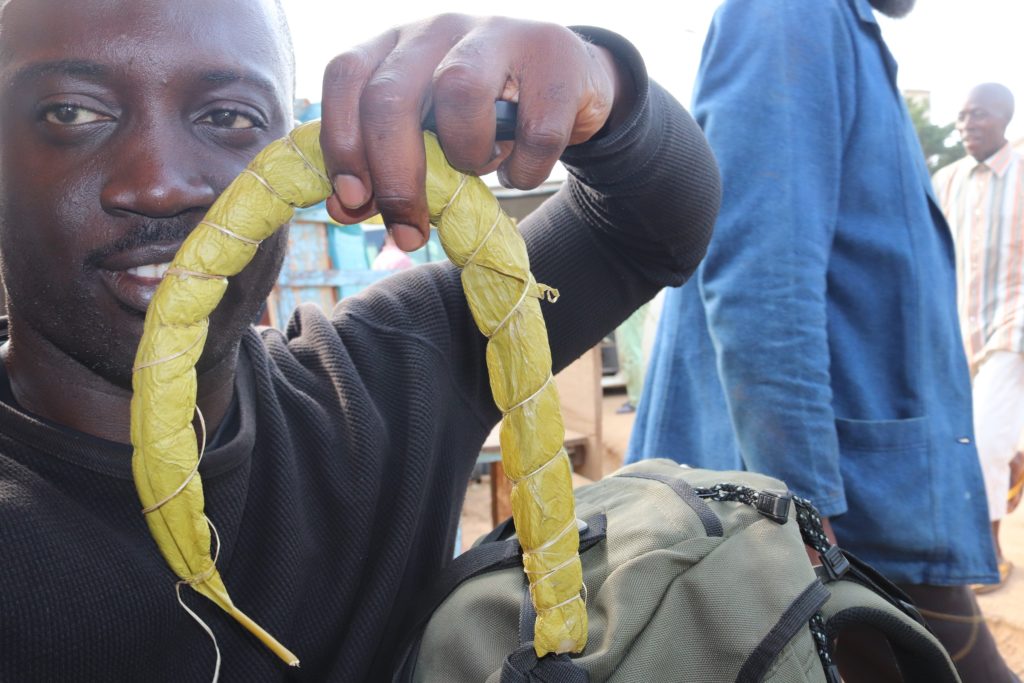
Baron de manioc 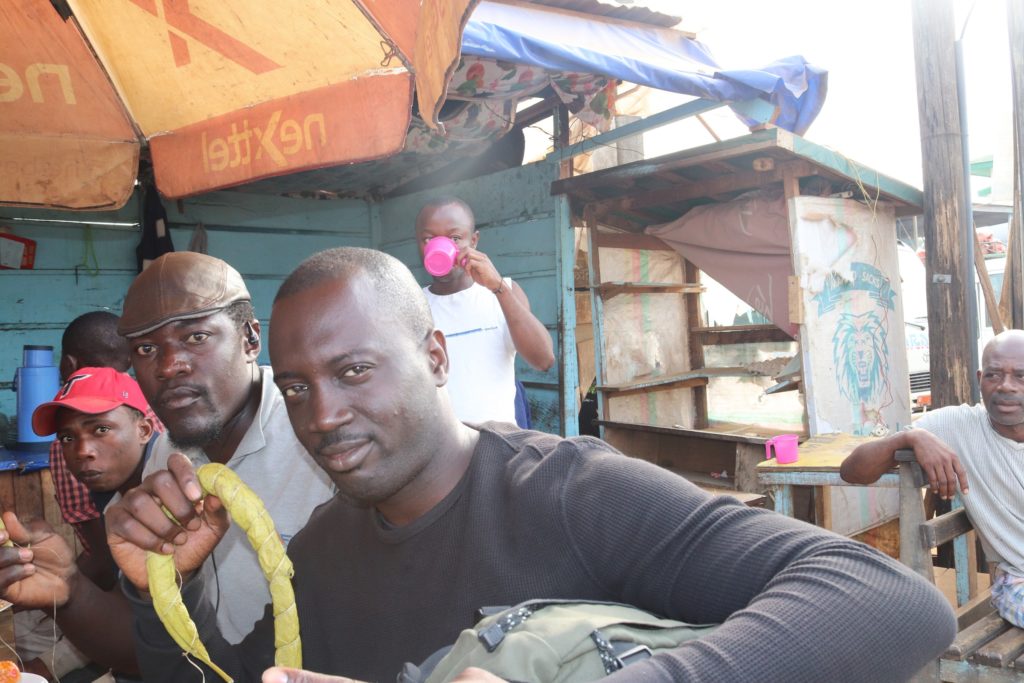
Patrick and myself having breakfast 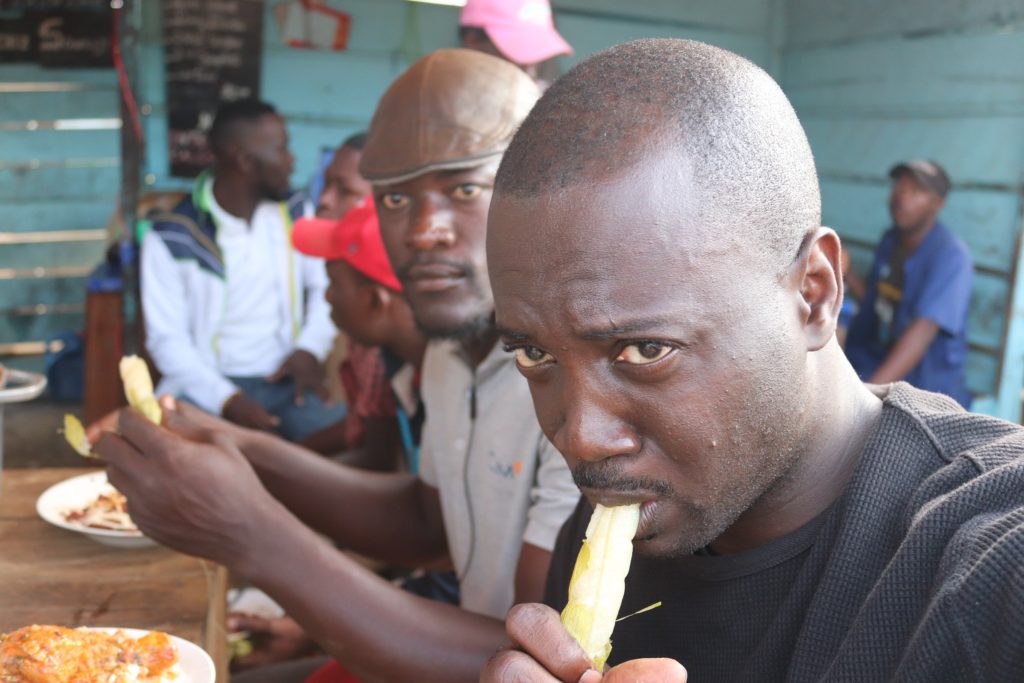
Patrick and myself having breakfast. I do not like baron de manioc. It is not my thing
After about three hours of waiting, a bus headed to Kiossi border showed up and I got a space. We left for the border but this time, most of the police officers and security apparatus were everywhere. We were stopped severally and one of the stops was so remarkable.
Ebolowa to Kiossi
I was fast asleep in the front seat of the vehicle. The police checkpoint routine is that they would request all passengers to come down from the vehicle. Once down, you are expected to identify yourself with either your national identity card also known as ‘carte d’identite’ for nationals and your international passport if you are a foreigner without a permit to live in the country.
Once the police notice any international passenger, they would require to see their vaccination card, passport and then request for money. My bag pack had a military color and the black sweater I had was like a military wear. During one of those stops, a female police officer had come to me and asked something that sounded like: ‘Toi-meme dormer?’ It was a bit confusing that she saw me sleeping and was asking me if I was sleeping – I simply replied a ‘oui’ (yes) in that situation and then this got her very interested in me. She assumed I was a military officer. Recall I had earlier planned a camouflage of having a clean shave so that I would look like a military officer – those worked but unfortunately it’s working against me at the moment. She wanted to know why I was traveling, where I was going to and also to see my identity card as a military officer and to see a picture of me in my military wear and with other military officers. I explained to her I was not a military officer but she insisted I told her earlier that I was one.
It was in the heat of the argument and in the midst of the driver threatening to leave me to move on with other passengers that I now asked her what it was I told her and she told me her question was “tu es dans la meme domain?” which is literally translated ‘are you in the same field?’ She was asking me if I was in the police and military but I understood her question to mean if I was asleep. It was then she breathed a sigh of relief and asked me go give her ‘something’ before leaving to the vehicle to continue my journey. The driver was very impatient and hooting uncontrollably, I had to tell her it was time to go and she let me go.
On our arrival at Kiossi, we took another vehicle that brought us very close to the border post with Equatorial Guinea. In this vehicle this time, I met this friendly lady who was going to Equatorial Guinea as well. She told me someone came around to pick her from the Equatorial Guinea side of the border to Bata and asked me to join her if I wished. I fell for it – I followed her and never bothered to get her contact immediately we reached that agreement. We arrived a final stop and then entered a motorbike that took us very close to the border post, where we would have our passport stamped by the immigration officers of Cameroon. This lady I met seems to be a bit influential. At the Cameroonian side, they stamped her passport without problems, she also got them to stamp mine without asking so many questions. The Equatorial Guinean side of the border was just across the road and we then walked up there to have our passport stamped as well.
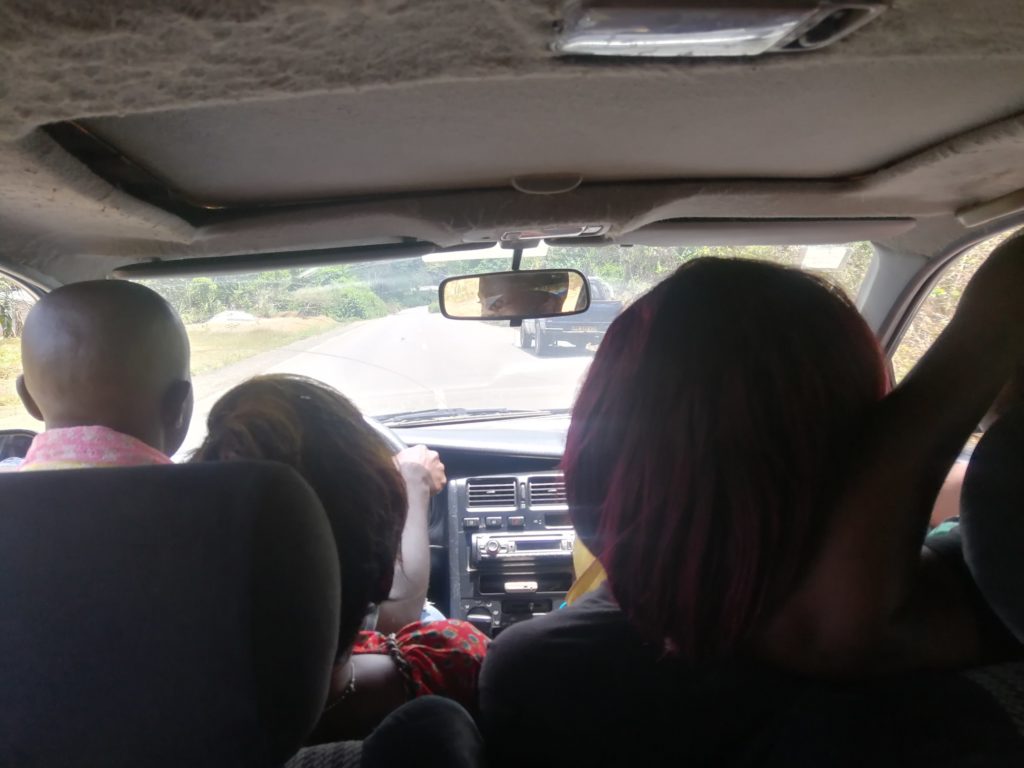
In the car going to the border. We were stuck 5 in a seat that would normally take 3 people 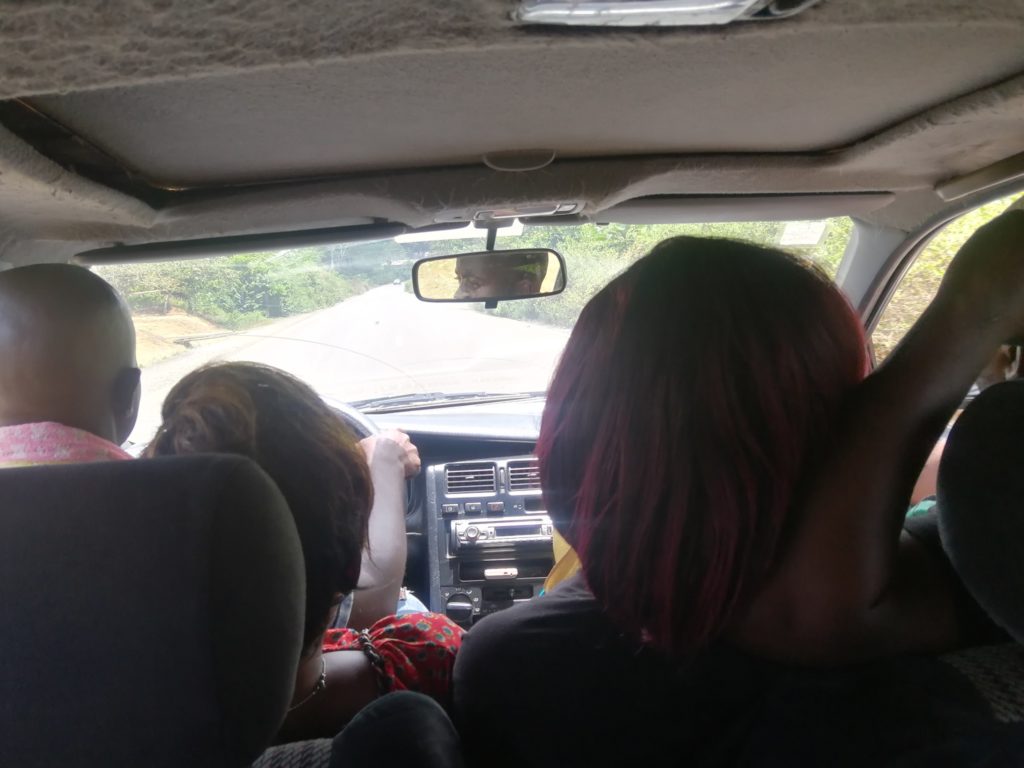
In the car going to the border. We were stuck 5 in a seat that would normally take 3 people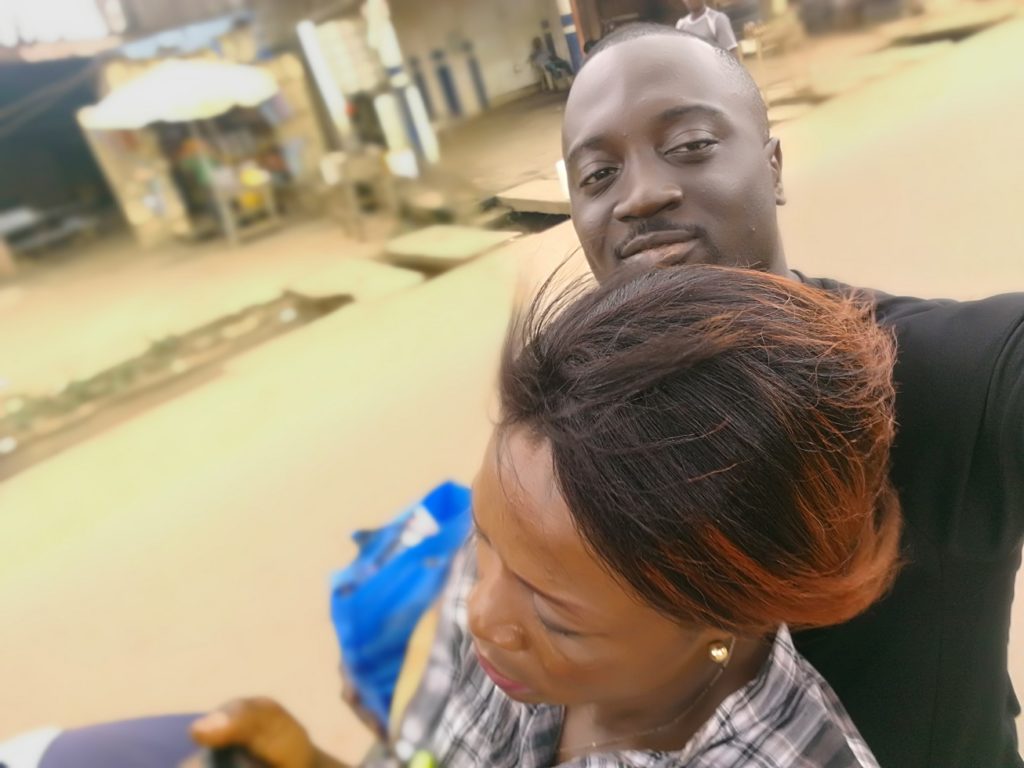
On the motorbike with the Lady going to the immigration post 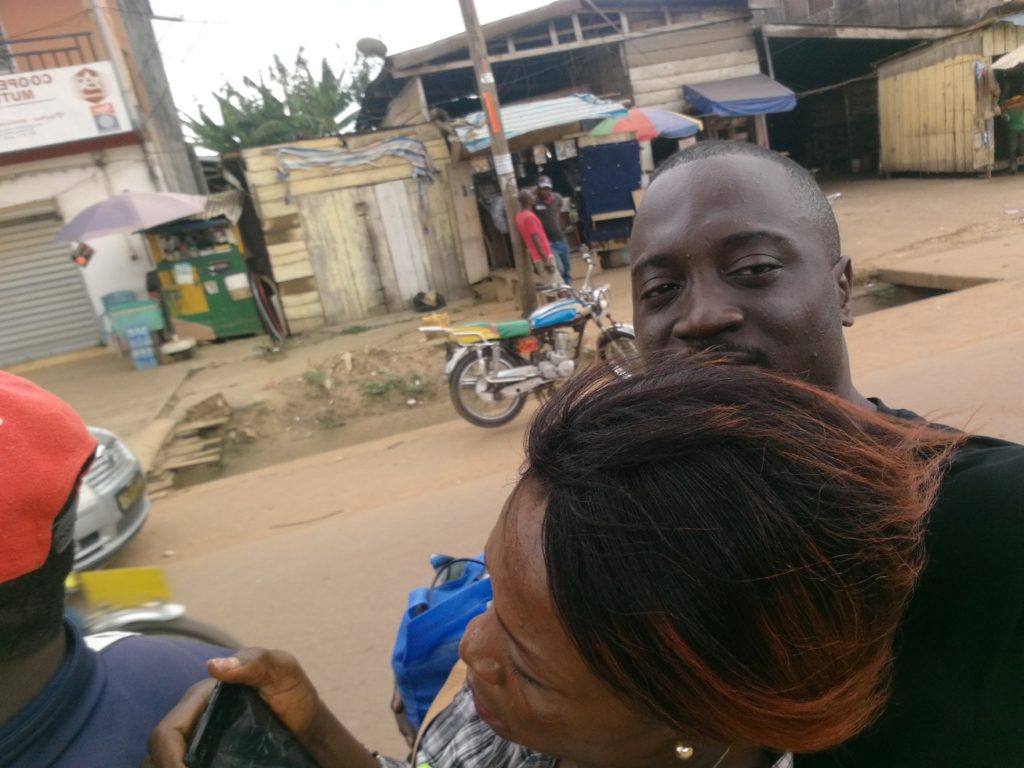
On the motorbike with the Lady going to the immigration post
On arrival at that point, lots of things changed. The language, looks, and the scenery. First, the language was now Spanish as against French that it was in Cameroon. It is always interesting how languages changes at border posts. Just across the road, the language was French and now, it has all changed to Spanish. I tried so hard to pay close attention so I could understand a few of the things they were saying but I could not. I could understand little or nothing. They spoke Spanish with a particular ascent – I learnt later the ascent is called Feng which is a native Bantu language widely spoken in that region – Cameroon, Equatorial Guinea, Gabon and a few places in Congo. Still perplexed about the language, I was also impressed about the scenery. Places beyond the border on the side of Equatorial Guinea looked nice and neat with street lights unlike the Cameroonian side which was dusty and noisy. I was also surprised by the number of security checks and the process at that end.
The Beginning of Problems at Equatorial Guinea Border
A few minutes later, it was my turn to be attended to. The immigration officer who understood French and Spanish upon looking on my passport and seeing I had a visa and am visiting the first time, requested I should hold on. After attending to a few persons, he took me to someone I think was his boss. The man looked fatherly and then got an immigration form and filled it for me. We were having a conversation in French when he was asking me what brings me to his country. I told him to I am a travel writer and I travel to promote tourism in Africa. I also attempted to have a conversation with him in Portuguese which really got him impressed – I had always known Portuguese is a lingua franca in Equatorial Guinea but in this case, I needed to speak it to impress this officer. Upon completing the form and stamping my passport, he requested I should pay a sum of 5000 CFA (Almost $10 USD). It was at that point I went on my knees to beg him, trusting his fatherly instincts would let him comprehend I was on a budget travel. After a few minutes of begging him, he allowed me to continue. Arriving the next security post outside, I had almost walked passed them when I heard a few of them screaming ‘Amigo!’ ‘Amigo!!’ at me. I was excited I had pulled off not paying any dime to get my passport stamped but little did I know I was going to get into something much more horrible than the initial one I faced. I was also trying hard to lookout for the lady friend I had met earlier who advised me to cross the border with her. I spent up to 15 minutes in the first office and she might have left there due to impatience. If at least I had her number, I would have called her to see of what help she would be in those ordeals, but unfortunately, the reverse was the case.
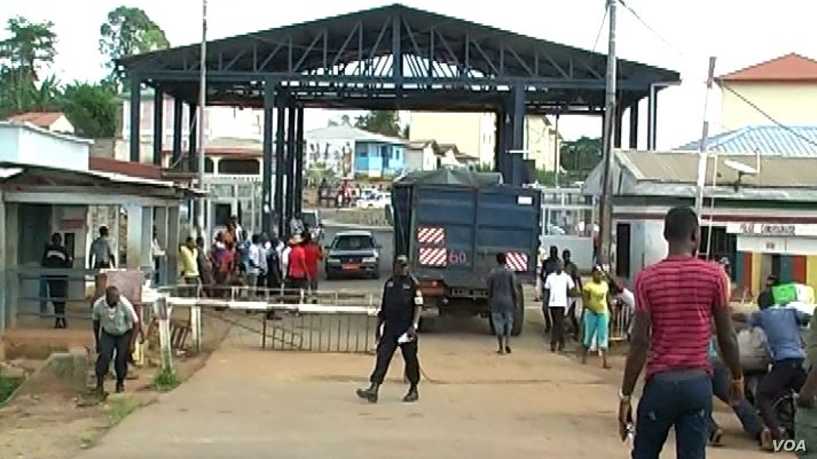
Source: VOA News
Pretending like I was not the one being referred to, I continued to move forward, after all, I am from an English speaking country and Amgio is Spanish. The guys still kept screaming ‘Amigo!!!’. Amigo is the Spanish or Portuguese word for friend. At that point, someone tapped me and pointed to these same set of guys who I assume were either customs or drug control officers. I then walked back to them. They asked me in French to pay 2000 CFA after I showed them my passport, an amount I told them that I do not have. I even explained to them that the gentleman in the immigration had allowed me to go without paying anything. When they saw I was not ready to pay, they delayed me and started searching my bag. It was then they saw my camera, the camera lenses, chargers, my sweater and a few other things. In the process of going through these items, a more senior officer who looked so stupid (my sincere apologies for using that word) showed up. He inquired a few things from them and they said a few things to him in their local dialect. It was then this senior guy took me and asked me to get into a car, from there we drove off to the police station. In the car, I asked him if there was any problem but he said nothing. He only collected my passport, my camera and my sweater.

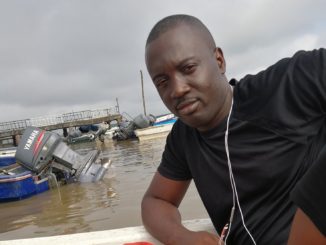
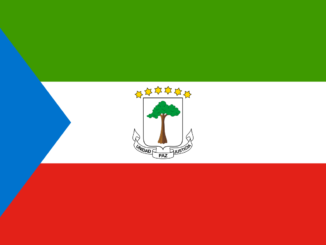
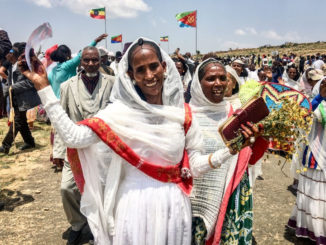
1 Trackback / Pingback